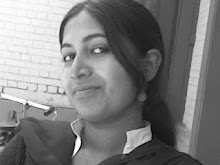CHAPTER 1
INTRODUCTION TO MANAGEMENT
WHAT IS MANAGEMENT?
Simply speaking management is what managers do. A better explanation is that management involves coordinating and over seeing the work activities of others so that their activities are completed efficiently and effectively.
DIFFERENT KINDS OF MANAGERS
FIRST LINE MANAGERS: these are managers a lowest levels of the organization that mange the work of non managerial employees.
MIDDLE MANAGERS: managers between the first and the top level of the organization who manage the work of first line managers.
TOP MANAGERS: managers at or near the upper levels if the organization structure who are responsible for making organization wide decisions and establishing the goals and plans that affect the entire organization.
MANAGEMENT FUNCTIONS
Managers engage in planning, they define goals, establish strategies for achieving these goals, and develop plans to integrate and coordinate these activities.
Mangers are also responsible for arranging and structuring work to accomplish the organizations goals. We call this function organization. When managers organize, they determine what tasks are to be done.
Every organization includes people and a manager’s job is to work with and through people to accomplish the organizational goals. This is the leading function. When managers motivate subordinates, help resolve work group conflicts etc.
The final management function is controlling. After the goals and plans are set (planning), the tasks and structural arrangements determines (organizing), and the people hired, trained, and motivated (leading), there has to be some evaluation if whether things are going as planned.
MANAGEMENT ROLES
INTERPERSONAL roles involve people and other duties that are ceremonial and symbolic in nature. These include figure heads leaders and liaisons. E.g. greeting visitors or doing external board work
INFORMATIONAL roles involve collecting, receiving and disseminating information. These include monitor, disseminator and spokes person. E.g. reading periodicals, making phone calls etc.
DECISIONAL role revolve around making choices. E.g. organizing strategy.
ORGANIZATION
It is the deliberate arrangement of people to accomplish some specific purpose. Organizations are changing because the world around them is changing. There are two types of organization traditional and dynamic.
WHY STUDY MANAGEMENT?
Universality of management – there is universal need for it
Reality of the job – people can either manage or be managed
There are certain rewards and challenges of a manager’s job.
Thursday, November 27, 2008
Subscribe to:
Post Comments (Atom)

No comments:
Post a Comment